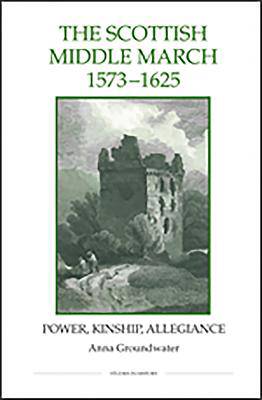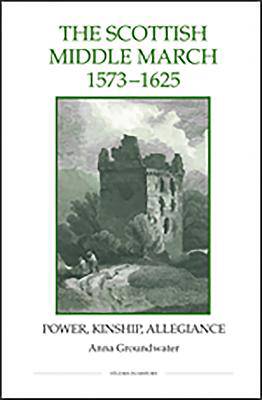
Bedankt voor het vertrouwen het afgelopen jaar! Om jou te bedanken bieden we GRATIS verzending (in België) aan op alles gedurende de hele maand januari.
- Afhalen na 1 uur in een winkel met voorraad
- In januari gratis thuislevering in België
- Ruim aanbod met 7 miljoen producten
Bedankt voor het vertrouwen het afgelopen jaar! Om jou te bedanken bieden we GRATIS verzending (in België) aan op alles gedurende de hele maand januari.
- Afhalen na 1 uur in een winkel met voorraad
- In januari gratis thuislevering in België
- Ruim aanbod met 7 miljoen producten
Zoeken
€ 177,45
+ 354 punten
Uitvoering
Omschrijving
The Scottish Borders experienced dramatic change on James VI's succession to the throne of England: where characteristically hostile Anglo-Scottish relations had encouraged cross-border raiding, James was to prosecute a newly consistent pacification of crime in the region. This volume explores his actions in the Middle March, the shires of Roxburgh, Peebles and Selkirk, by examining governmental processes and structures of power there both before and after Union. It suggests that James utilised existing networks of authority, with the help of a largely co-operative Borders elite that remained in place after 1603; kinship and alliance helped to form these networks, and government is shown to have used their associated obligations. The book thus overturns the traditional view of a semi-anarchic region beyond the control of government in Edinburgh. Building on this account of the transformation wrought by Union, the volume also places the Middle March in the context of Scottish state formation and the intensification of administrative activity and political control, particularly within James' determined efforts to suppress feuding. It therefore tests wider claims made by historians about the changing nature of governance and judicial processes in early modern Scotland as a whole, and within a nascent `Great Britain'. Anna Groundwater is an Honorary Postdoctoral Fellow in Scottish History at the University of Edinburgh.
Specificaties
Betrokkenen
- Auteur(s):
- Uitgeverij:
Inhoud
- Aantal bladzijden:
- 248
- Taal:
- Engels
- Reeks:
- Reeksnummer:
- nr. 73
Eigenschappen
- Productcode (EAN):
- 9780861933075
- Verschijningsdatum:
- 16/09/2010
- Uitvoering:
- Hardcover
- Formaat:
- Genaaid
- Afmetingen:
- 160 mm x 236 mm
- Gewicht:
- 566 g

Alleen bij Standaard Boekhandel
+ 354 punten op je klantenkaart van Standaard Boekhandel
Beoordelingen
We publiceren alleen reviews die voldoen aan de voorwaarden voor reviews. Bekijk onze voorwaarden voor reviews.









